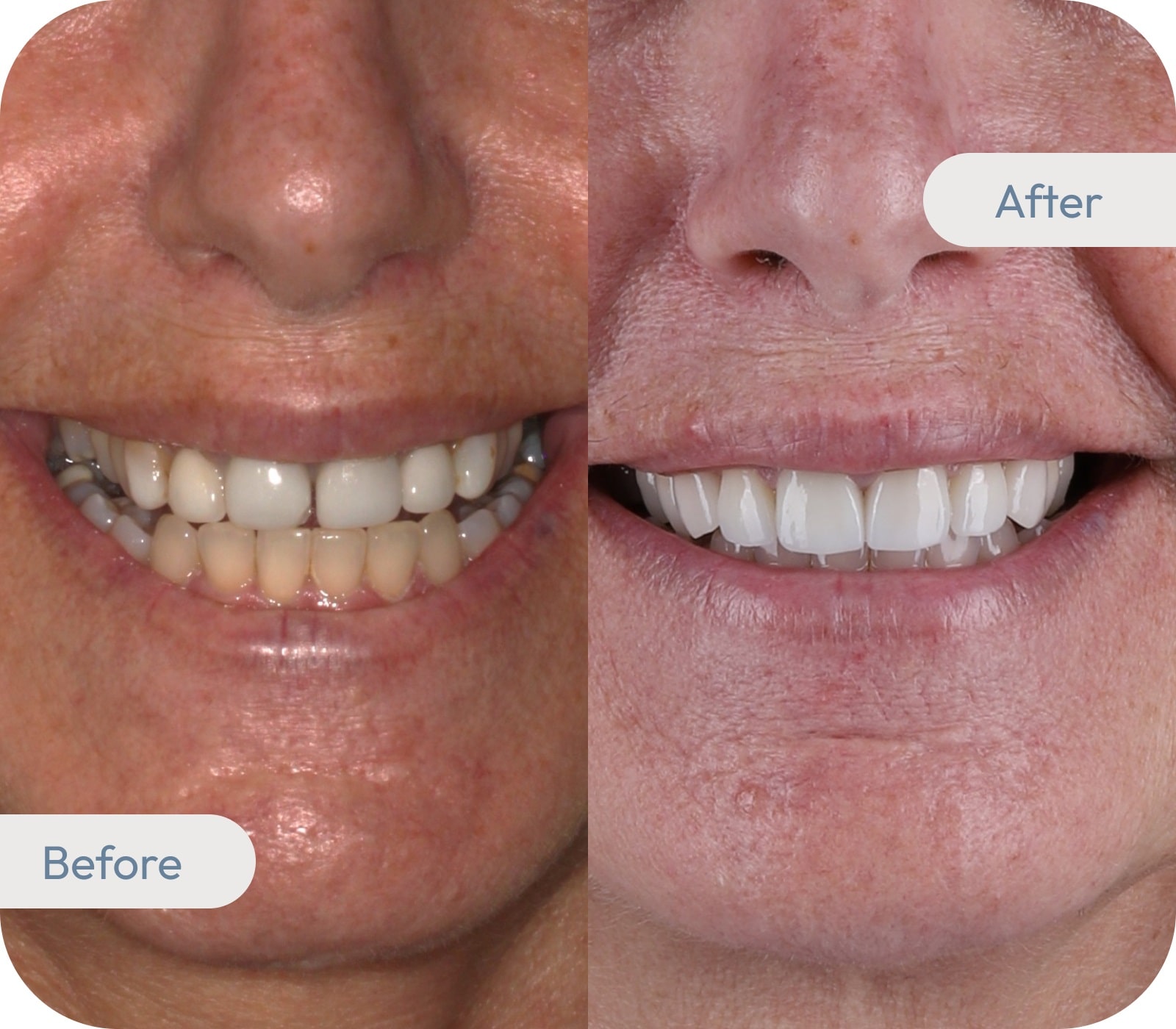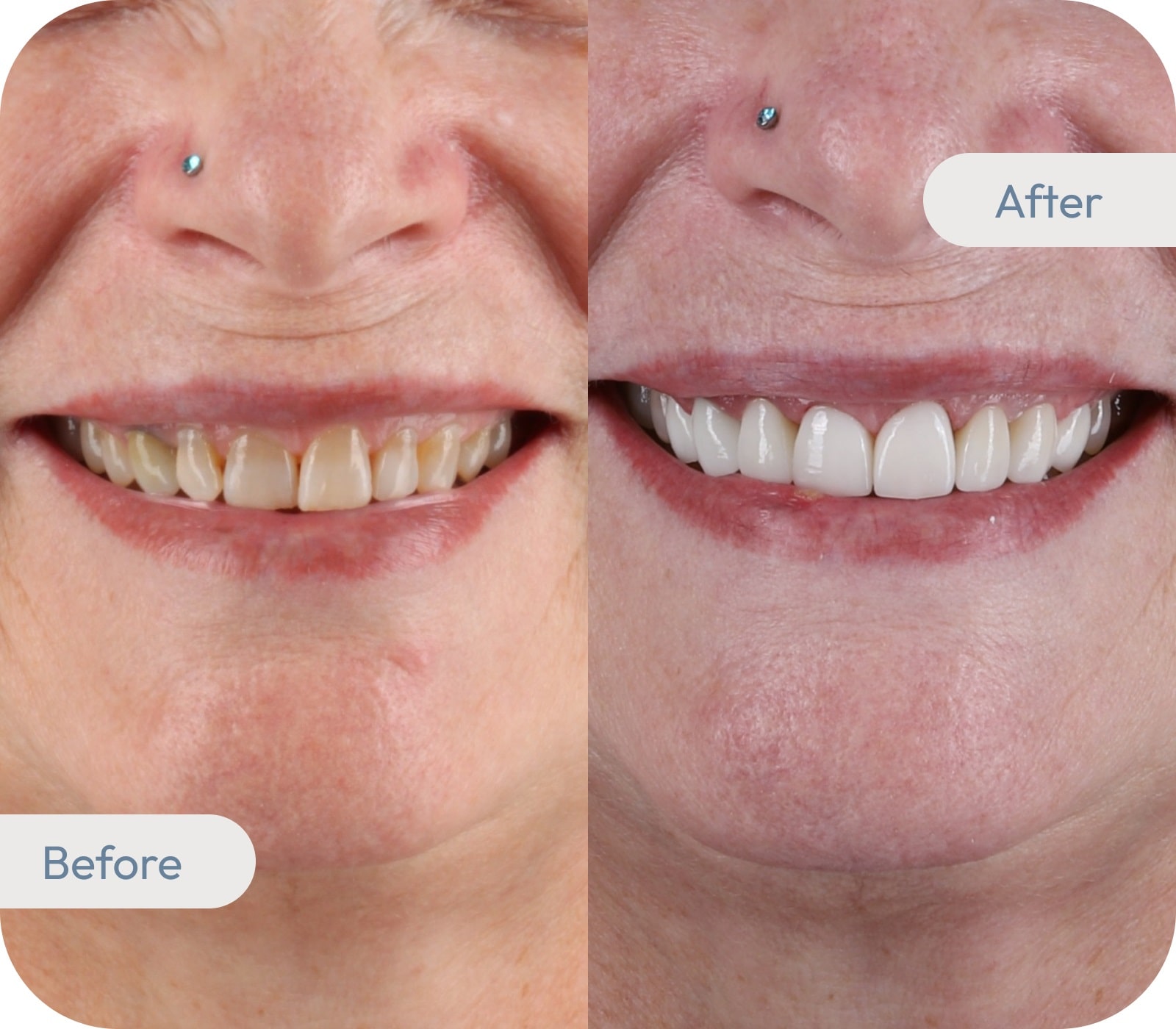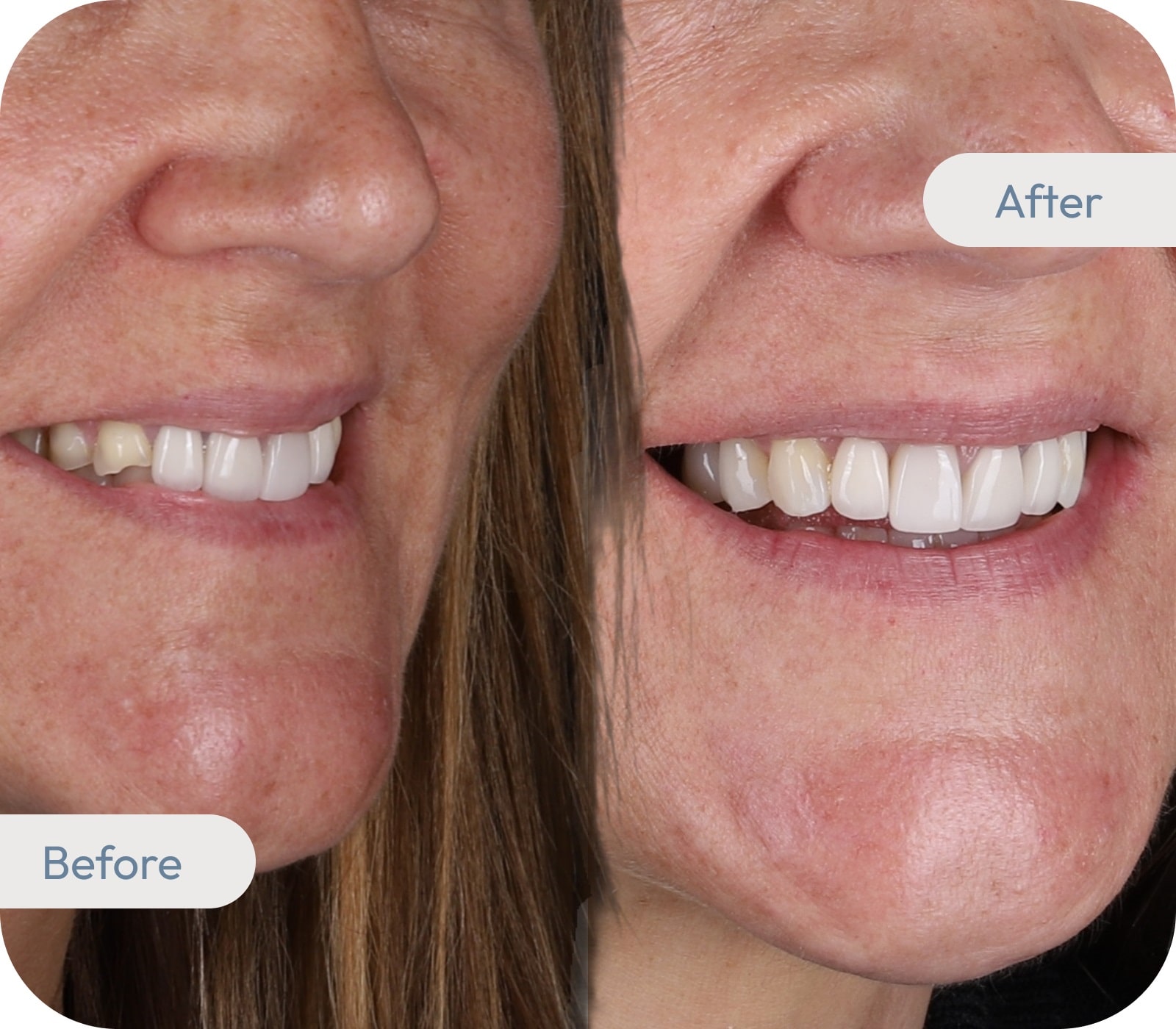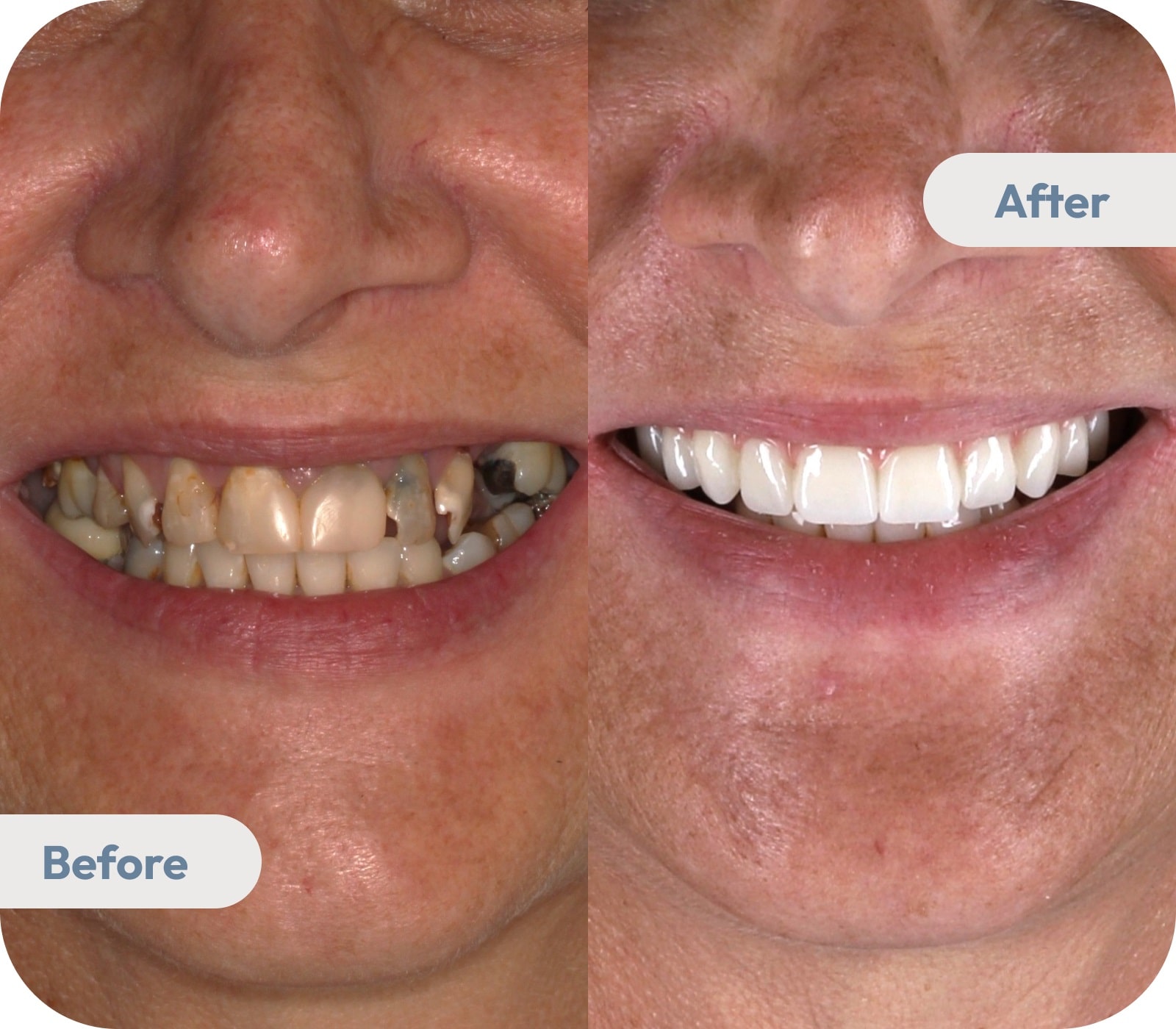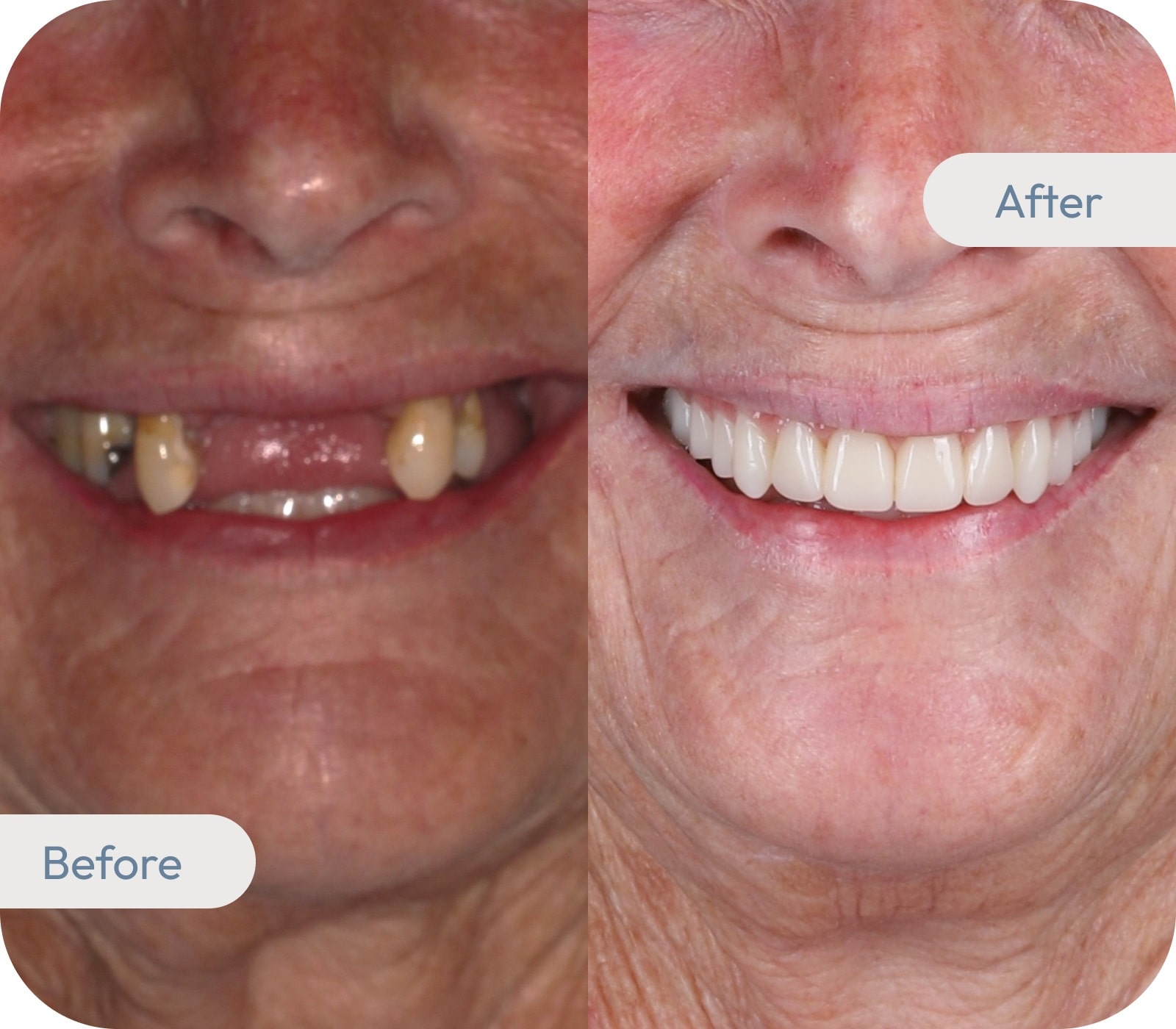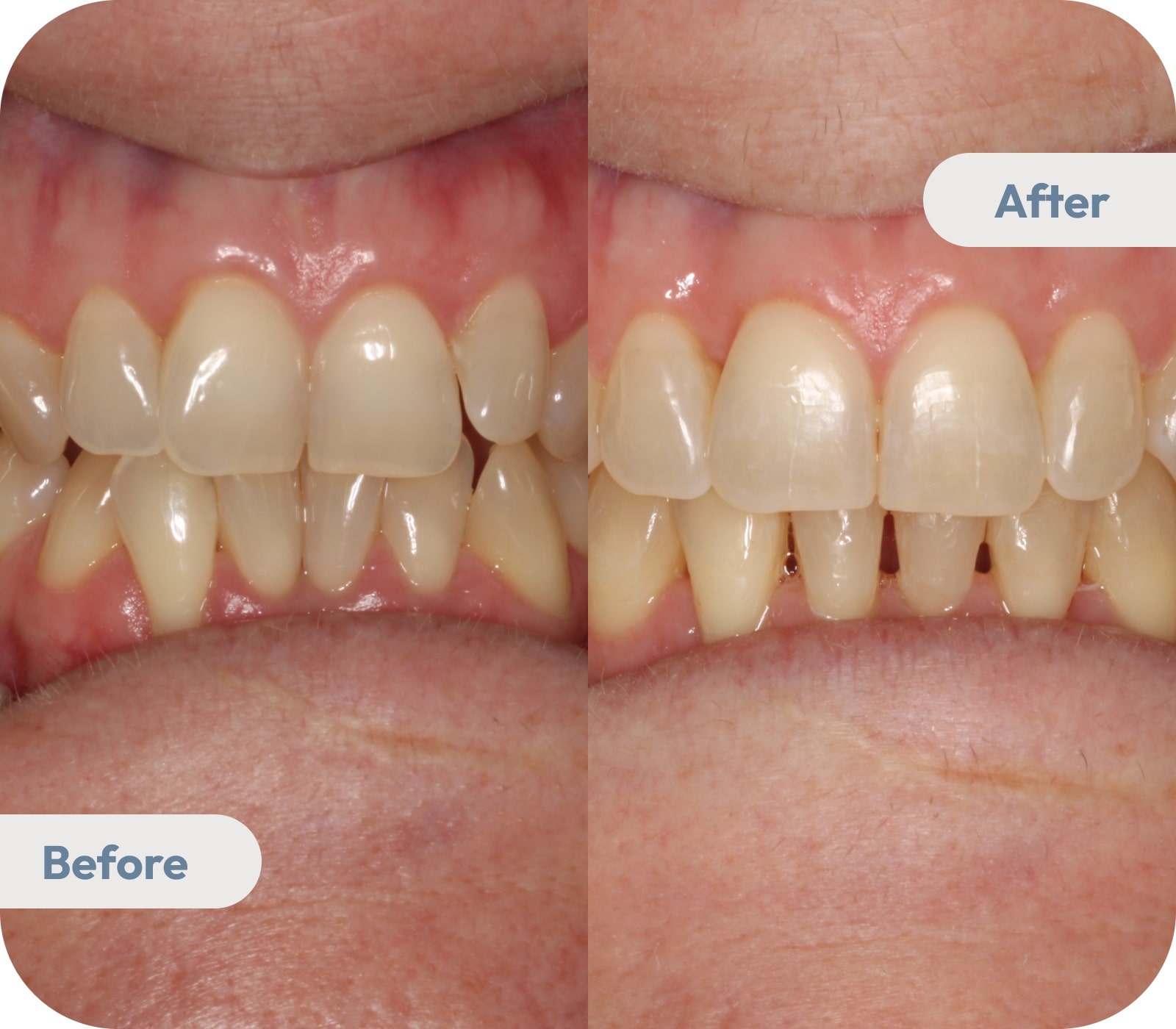Restore Your Bite, Improve Function
Learn About Our
Dental Implant
Procedure
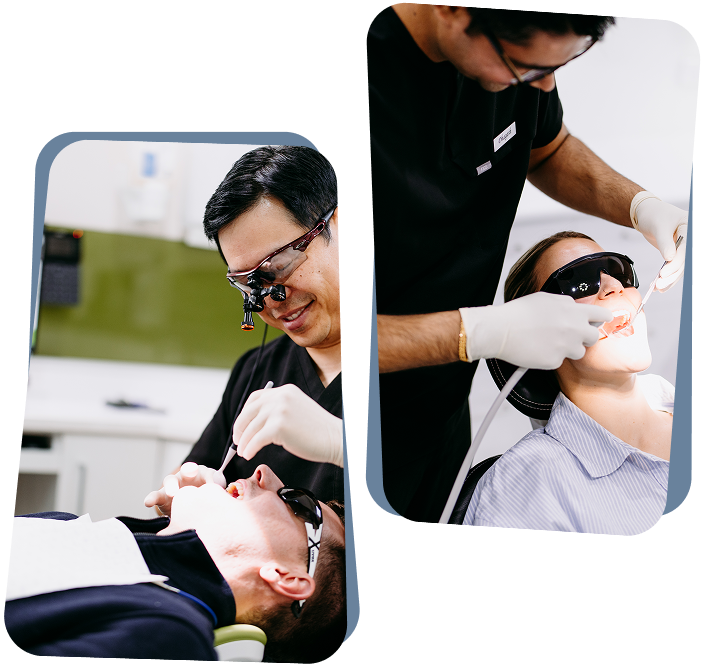
The Role of Dental Implants in Long-Term Tooth Replacement
Transparent Pricing at Eversmile Dental in Bunbury
Single Implants
Starting from
$6,400 per implant
- A single implant restores your smile by replacing a missing tooth with a secure, natural-looking prosthesis. It also supports normal speech, chewing, and long-term function.
- Costs can vary depending on your oral health, bone density, and the complexity of your treatment plan. Each case is different, so we assess your needs carefully.
- Some patients may require additional procedures such as bone grafting or sinus lift. A detailed quote is provided after a dental consultation and thorough clinical assessment.
Multiple Implants
Starting from
$12,800
- The total cost depends on how many implants you need and if procedures like bone grafting are required. We’ll explain the details clearly after assessing your oral health and treatment goals.
- A personalised treatment plan will outline your implant options and pricing in detail following your consultation. You’ll have time to ask questions and understand your choices before starting.
- Payment plans may be available to help manage treatment costs. We will guide you through each stage of your treatment with clear communication and care tailored to your individual needs.
All-on-X Implants
Starting from
$22,000 - $50,000
- All-on-X treatment replaces a full arch of missing teeth using four to six implants. It offers a stable alternative to dentures.
- Costs vary based on how many implants are needed and if additional steps like bone grafts are required. A dental consultation helps us assess your suitability and provide a detailed quote tailored to your oral health needs.
- Payment plans may be available to support affordability, depending on your treatment needs, preferences, and budget.
Porcelain Veneers
Starting from
$1,100
- Veneers can address discolouration, chips, or uneven teeth. The total cost depends on how many veneers are included in the treatment and the materials used.
- A detailed quote is provided after your consultation. Some patients may need additional procedures before veneers can be placed safely and effectively.
- As a cosmetic dental treatment, veneers are usually not covered by most health funds. Flexible payment plans may be available to assist with affordability.
Composite Veneers
Starting from
$500 - $900
- Composite veneers can typically be completed in a single visit and are often used to improve the appearance of minor chips, gaps, or discolouration. They provide a minimally invasive cosmetic treatment option with natural-looking results.
- Costs vary based on how many teeth are included in the procedure. The final price depends on individual needs and smile goals.
- Composite veneers are more affordable than porcelain. However, they may require periodic touch-ups over time, depending on factors such as daily habits, natural wear, and adherence to a proper maintenance routine.
Minor Treatment
Starting from
$4,500
- Minor Invisalign cases address mild crowding and spacing. Treatment usually takes between three and six months to complete.
- Costs vary based on how many aligners are required in total. Review appointments, digital scans, and case complexity influence final pricing.
- Most health funds offer limited cover for Invisalign treatment plans. We offer flexible payment options to make treatment more manageable. Costs are discussed during your consultation based on individual needs.
Full Treatment
Starting from
$6,000 - $9,000
- Full Invisalign can address minor crowding, spacing, and bite alignment concerns. Treatment time varies depending on your case, goals, and clinical needs.
- Costs vary based on treatment length, aligner quantity and review appointments. A personalised quote is provided after your initial consultation visit.
- Some private health funds may offer limited orthodontic benefits depending on your cover and eligibility criteria. Flexible, interest-free payment plans can help make Invisalign treatment more affordable, accessible, and manageable over time.
Understanding Candidacy for the Dental Implant Procedure
- Missing Teeth
Implants may provide stable support for natural-looking replacements, whether missing a single tooth or several. They may help improve comfort and function without relying on removable options or affecting healthy adjacent teeth.
- Healthy Oral Hygiene
Suitable candidates are those who are able to maintain regular brushing, flossing and professional checkups. A clean, healthy mouth may support healing after implant placement and can help lower the risk of complications such as inflammation or infection around the implant site.
- Fully Developed Jaw
Individuals with complete jaw development are generally suitable candidates because mature bone may provide a stable foundation to support the implant. Your dentist will assess growth and bone condition before planning your treatment.
- Healthy Gums
Suitable candidates typically have gums free from active periodontal disease. Healthy gum tissue may support implant stability and healing, and can help maintain the bone, surrounding teeth and soft tissue over time with proper care.
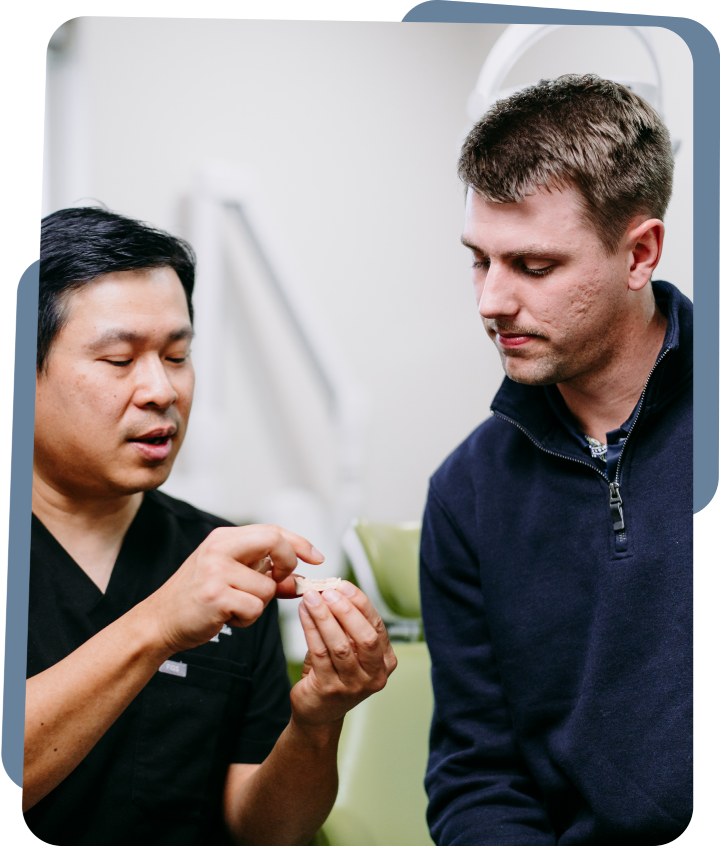
Dental Implant Procedure: From Initial Consultation to Recovery
During your first appointment, the dentist providing dental implants in Bunbury will review your dental and medical history, assess your oral health, and take diagnostic images such as CBCT scans. This information helps evaluate bone structure and plan your treatment. You'll also discuss whether implants are clinically suitable for your oral health. No procedures are performed at this stage, as the focus is on assessment, planning, and treatment recommendations.
After your assessment, an individualised treatment plan will be developed based on your clinical oral health assessment. This may involve a single implant, multiple implants, or a full-arch implant-supported option (sometimes known as All-on-X). The discussion will include estimated costs, expected timelines, and any preparatory procedures, such as bone grafting if required. Patients will have the opportunity to ask questions and review information provided during the consultation.
On the day of your procedure, your dentist will review available sedation options appropriate for your procedure. A small titanium post is then carefully placed into the jawbone to act as the implant’s foundation. Some discomfort is expected after placement and can typically be managed with prescribed pain relief medication and aftercare instructions as advised by your dentist. You'll be guided on how to eat, clean the area, and manage healing during the early recovery stage.
After implant placement, the healing process may take several months, often between three and six, depending on individual circumstances. During this time, the bone fuses with the implant through a process called osseointegration, an important factor for long-term stability. You'll attend checkup appointments to monitor progress. Maintaining daily oral hygiene, following aftercare advice, and attending follow-up visits all help support healing and maintain the implant site during this phase.
Once healing is complete, a custom-made crown, bridge, or denture is attached to the implant. Your dentist will evaluate the fit and appearance of the restoration prior to final placement. After placement, you will have follow-up visits to check how the restoration is functioning. Proper maintenance, including regular checkups and good oral hygiene, helps support the ongoing health of the implant and surrounding tissues.
Smile Gallery – Before and After Treatment Examples
*These images display actual patients of our clinic. Every case is different, and treatment outcomes can vary according to individual conditions and needs.
Our Approach to Dental Implants in Bunbury
-
- Dental Care for the Bunbury Community
- Our team lives and works in Bunbury, and we are committed to supporting the oral health needs of our local community. We provide care that is respectful, professional, and guided by our long-standing connection to the community.
-
- Providing Dental Implant Treatment in Bunbury Since 2006
- For almost two decades, we’ve provided dental implant treatment for patients in Bunbury and the South West. With advanced training and clinical experience, our implant dentists plan and place implants using evidence-based methods. Treatments are designed with a focus on function, appearance, and maintaining oral health over time.
-
- Implant Dentistry Tailored to Patient Needs
- Dental implants are about more than just restoring function—they help restore chewing and speech function and replace missing teeth. At Eversmile Dental, we take a patient-focused approach to care for individuals. We focus on building a strong, healthy foundation, understanding your goals, and providing treatment that fits seamlessly into your lifestyle.
-
- We Listen First—Then We Plan Together
- Every implant treatment is different. That’s why we start with a conversation. We’ll guide you through your options with clear information about possible risks, benefits, and costs. You’ll have time to ask questions, feel heard, and make a decision you’re completely comfortable with.
-
- Ethical and Patient-Centred Care
- We are committed to providing patients with clear information and supporting informed decision-making about treatment. If implants are right for you, we’ll guide you through the process with skill and care. If they’re not, we’ll tell you and offer alternative options.
-
- Digital Technology for Implant Planning and Placement
- From CBCT to digital planning and in-house 3D printing, we use modern technology to assist in the planning and placement of implants. These tools support accurate treatment planning and efficient appointments. You don’t need to travel far for modern dental services—it’s available here in Bunbury.

What to Consider Before Choosing Dental Implants
Choosing dental implants involves more than just being clinically eligible. It’s a long-term commitment that includes healing time, follow-up visits, and regular care. Recovery times vary between individuals, and follow-up care is an important part of the process.
It’s also important to consider the financial aspect and the ongoing maintenance involved. Implants need daily cleaning and professional checkups. Understanding the time, costs, and care involved can help you consider your options. Your dental team will talk you through each stage of the process.
Explore Our Dental Implant Information Pages
Frequently Asked Questions
What does a dental implant look like?
A dental implant is designed to resemble a natural tooth, though most of it sits below the gumline and is not visible. Only the crown, the top part, can be seen when you smile, speak, or chew. Here’s what each part of the implant looks like:
- Implant Post (Not Visible):
This part looks like a small metal screw and is placed inside the jawbone. It is most often made of titanium. In some cases, ceramic (zirconia) may be used instead, such as for patients with metal sensitivities or those who prefer a non-metallic material for aesthetic reasons. - Abutment (Partially Visible During Healing):
The abutment is a connector that looks like a small peg. It links the implant post to the crown and may be briefly visible during healing. - Crown (Visible Tooth Replacement):
The crown is shaped and coloured to match your natural teeth. It looks like a real tooth and is the only part you’ll see once the implant is complete.
What are the steps of a dental implant procedure?
The dental implant procedure is typically completed in stages, allowing time for healing and for the implant to integrate with your jawbone. Here is a general outline of the steps involved:
- Initial consultation and planning:
Your dentist will assess your oral health, take X-rays or 3D scans, and discuss your tooth replacement options. If you choose Eversmile Dental implants, a personalised treatment plan will be developed based on your needs. - Tooth removal (if needed):
A damaged or decayed tooth may need to be removed before the implant can be placed safely. - Bone grafting (if required):
Some patients need a bone graft to support the implant. This step is usually recommended when bone density is insufficient. - Implant placement:
A titanium post is placed into the jawbone. The post acts as an artificial tooth root and forms the base for the crown. - Healing and integration period:
Over the next three to six months, your jawbone gradually fuses with the implant. This biological process, called osseointegration, is essential to how dental implants work. Osseointegration helps the implant form a stable base for the replacement tooth, although outcomes vary depending on individual factors. - Abutment placement:
A small connector (called an abutment) is attached after healing. This component links the implant to the crown and helps support functions such as chewing and speaking. - Final crown placement:
A custom-made crown is fitted on the abutment. It is shaped and coloured to blend with your surrounding teeth.
How long does the dental implant process take from start to finish?
The total time for a dental implant procedure can vary, depending on your oral health and whether additional steps are needed. Generally, it may take three to nine months from your initial consultation to the final crown placement. The process can often include the following stages:
- Consultation and planning (1 to 2 weeks):
This includes scans, assessment, and discussing your tooth replacement options, such as dental implants at Eversmile Dental. - Tooth removal, if required (immediately or 10-12 weeks):
If a tooth needs to be removed and available bone and surrounding tissues are favourable, an implant may be placed immediately during the same appointment. Sometimes, the extraction site requires a healing period of about three months before the implant stage. - Bone grafting, if needed (3 to 6 months of healing):
If your bone needs strengthening, grafting is done before placing the implant. This healing phase may help create a stable foundation for the implant and is intended to support the site before implant placement, although outcomes vary. - Implant placement (1 day, with 3 to 6 months of integration):
The titanium implant is placed during a single surgical appointment. Healing takes several months, during which the implant may fuse with the bone. - Abutment and crown placement (2 to 4 weeks):
After healing, the abutment and custom crown are placed to complete this stage of treatment.
The total time for a dental implant procedure can vary, depending on your oral health and whether additional steps are needed. Generally, it may take three to nine months from your initial consultation to the final crown placement. Here’s how the timeline usually breaks down:
- Consultation and planning (1 to 2 weeks):
This includes scans, assessment, and discussing your tooth replacement options, such as Eversmile Dental implants. - Tooth removal, if required (immediately or 10–12 weeks):
If a tooth needs to be removed and available bone and surrounding tissues are favourable, an implant may be placed immediately during the same appointment. Sometimes, the extraction site requires a healing period of about three months before the implant stage. - Bone grafting, if needed (3 to 6 months of healing):
If your bone needs strengthening, grafting is done before placing the implant. This healing phase is important to create a stable foundation for the implant. - Implant placement (1 day, with 3 to 6 months of integration):
The titanium implant is placed during a single surgical appointment. Healing takes several months, allowing it to fuse with the bone. - Abutment and crown placement (2 to 4 weeks):
After healing, the abutment and custom crown are placed to complete the restoration.
Are you left without teeth during the dental implant process?
In many cases, patients may not be left without teeth after dental implant placement. Temporary missing teeth options are often available to maintain your appearance and function while the implant site heals. Here are some ways your smile can be maintained during treatment:
- Temporary partial dentures:
These are removable appliances that fill the space while healing takes place. They are one of several missing teeth options your dentist may offer. - Retainers with a tooth:
A clear plastic retainer with a false tooth can be worn. It is lightweight, discreet, and commonly used for front teeth. - Temporary crowns or bridges:
In some cases, a temporary crown or bridge may be placed, especially if the implant is in a visible area. - Immediate implant placement with a temporary crown:
For some patients, the implant and a temporary crown may be placed during the same appointment. The choice depends on bone strength and healing response.
Is getting a dental implant painful?
The dental implant procedure is usually carried out using local anaesthesia, which is used to help manage discomfort during the appointment. Local anaesthesia numbs the implant site, so most patients feel pressure or vibration. Your dental professional can also discuss sedation options in advance if you are feeling anxious.
People can have different experiences after the procedure, and it’s common to experience mild soreness, swelling, or bruising near the area. These symptoms are generally managed with over-the-counter pain relief as advised by your dental professional. Discomfort related to healing may improve within a few days, depending on the body’s response.
At the clinic offering dental implants, your care team will provide clear instructions to support healing and reduce discomfort.
What is the recovery time after a dental implant procedure?
Recovery time varies depending on your overall health, the number of implants placed, and whether bone grafting was needed. Here’s a general guide:
- Initial recovery (2 to 7 days):
Swelling, mild pain, or bruising may occur near the implant site. These symptoms may ease within the first week. - Return to daily activities (2 to 5 days):
Many people resume work or light routines within this period, depending on their healing response. - Ongoing healing (up to 2 weeks):
Tenderness in the gums and minor discomfort may continue but may reduce gradually with time and appropriate care, such as avoiding chewing on the implant site. - Full internal recovery (3 to 6 months):
Although you may feel normal on the outside, the jawbone may continue to integrate with the implant beneath the surface. This stage is important for supporting long-term stability before the crown is added. Healing can be supported by following care instructions, such as maintaining gentle oral hygiene and avoiding pressure on the implant site.
Can I get dental implants if I have bone loss?
In some cases, it may still be possible to receive dental implants if you have experienced bone loss. However, the amount and location of bone loss will influence the type of care recommended. Your dental professional will examine your oral health and determine whether your jawbone can support an implant.
In cases where bone is insufficient, additional procedures such as bone grafting or sinus lifts may be suggested. These procedures are intended to rebuild jawbone volume and may help provide the stability needed.
What are the risks or downsides of dental implants?
While dental implants are a common option for replacing missing teeth, there are risks and limitations to consider. These vary depending on your general health, bone condition, and how well post-procedure care is followed. Here are some of the possible risks or downsides:
- Surgical side effects:
Placing a dental implant involves minor oral surgery. After the procedure, it’s common to experience swelling, bruising, mild pain, or bleeding near the implant site. These symptoms may usually improve within a few days to a week and are often managed with over-the-counter pain relief, as advised by your dental professional. - Risk of infection:
There is a small risk of infection during the healing phase. An infection may occur if bacteria enter the gum around the implant. Maintaining good oral hygiene and attending follow-up appointments can help reduce this risk. - Implant not integrating with the bone:
In some cases, the implant may not successfully fuse with the jawbone, a process called osseointegration. This may require the implant to be removed and placed again after further healing. Factors like smoking or poor oral hygiene can increase this risk. For example, research shows that smoking significantly increases the risk of implant failure compared to non-smokers. - Need for additional procedures:
If the jawbone has shrunk or lacks volume, additional procedures such as bone grafting or sinus lifts may be recommended before the implant can be placed. These procedures may extend the treatment time by several weeks or months, depending on the healing progress. - Extended treatment timeline:
In many cases, the full process from consultation to final crown placement can take anywhere from three to nine months. This duration includes healing time between each stage, especially if grafting is involved.
How do implants compare to bridges or dentures?
Dental implants, bridges, and dentures are all options for replacing missing teeth. Each has different benefits, limitations, and maintenance needs. The most suitable option depends on your oral health, bone condition, and treatment goals. Here’s a general comparison:
Support and stability
- Implants are placed into the jawbone and may provide stable support designed to act like tooth roots.
- Bridges rely on neighbouring teeth for support and may require reshaping healthy ones.
- Dentures rest on the gums and may shift slightly during eating or speaking without adhesive or support.
Jawbone preservation
- Implants may help stimulate the jawbone, which may help maintain bone levels.
- Bridges and dentures do not interact with the bone directly and may not prevent changes in jaw structure.
Maintenance
- Implants are generally cared for similarly to natural teeth with regular brushing and flossing.
- Bridges require cleaning around the base and underneath.
- Dentures often require daily removal and may involve cleaning with specific products recommended by your dental professional.
Comfort and function
- Dental implants may feel more stable when chewing or speaking, particularly compared to removable options.
- Bridges are placed securely and usually remain stable, but they can affect neighbouring teeth.
Dentures may take time to adjust and can feel bulky or loose if not fitted properly.
Longevity
- A dental bridge may last over 10 years if it is well cared for.
- Full upper or lower conventional dentures often last around five to eight years before needing replacement or adjustment.
Dental implant posts placed in the jawbone have been shown in some cases to last 20 years or longer with appropriate care and monitoring. The implant crown, bridge, or denture may last 5 to 15 years, depending on wear and maintenance.
Do you go to sleep for dental implants?
Most dental implant procedures are done under local anaesthesia, meaning the area is numbed while you remain awake. This helps manage discomfort during the procedure without needing to be put to sleep. Sedation may be an option if multiple implants need to be placed to help with anxiety or procedural needs, but it is not required. General anaesthesia, where you are fully asleep, is rarely needed. It is typically reserved for hospital-based procedures or cases involving complex medical needs, such as severe anxiety.
Various Payment Options Available
Book Your Appointment Online or Call Our Bunbury Dental Clinic
Book an appointment with our dentist in Bunbury to discuss your oral health needs. We provide tailored dental treatments and clear information to support informed decisions about your dental care.
